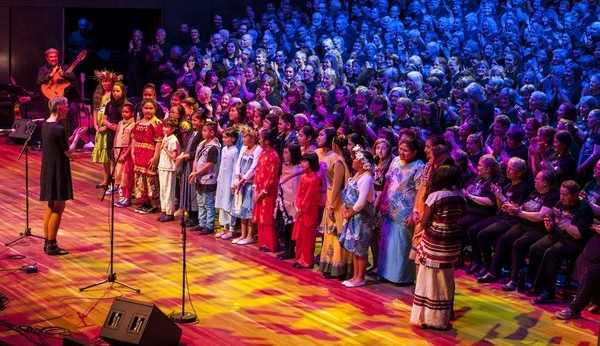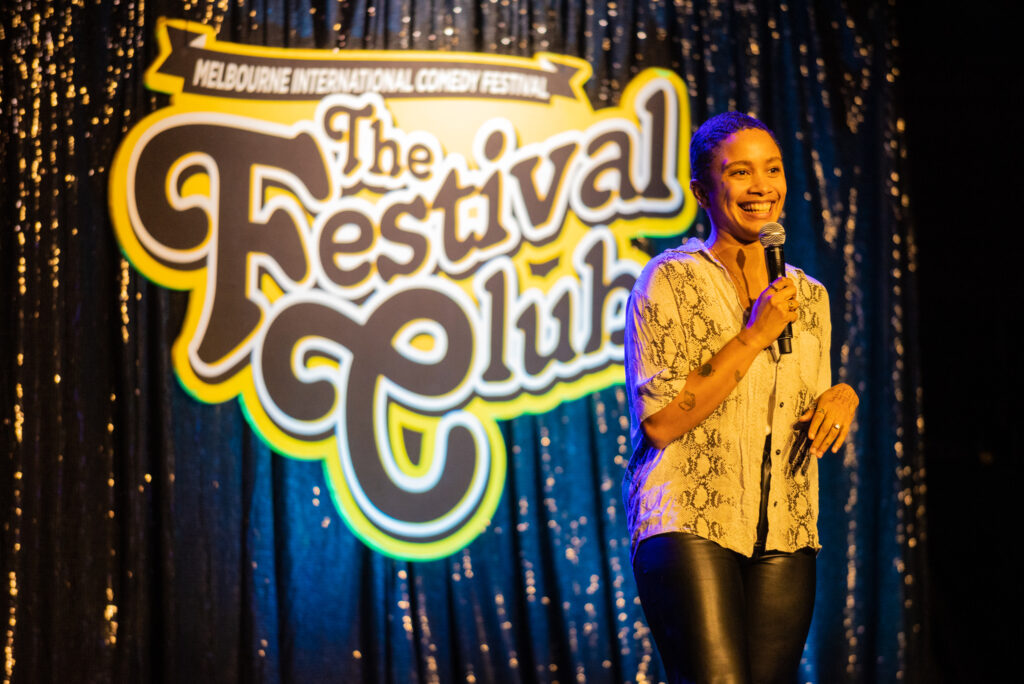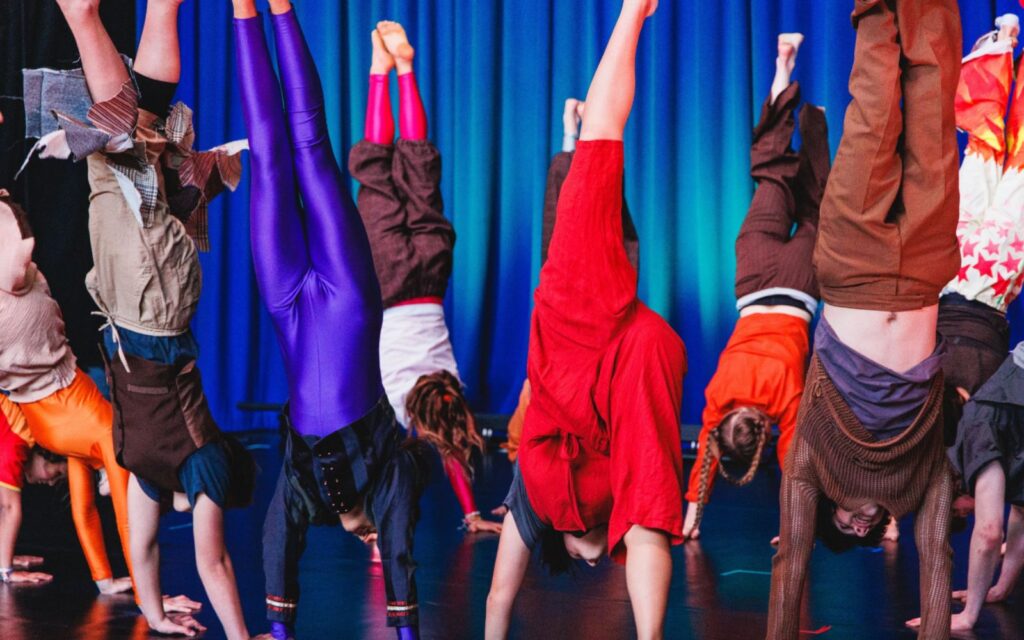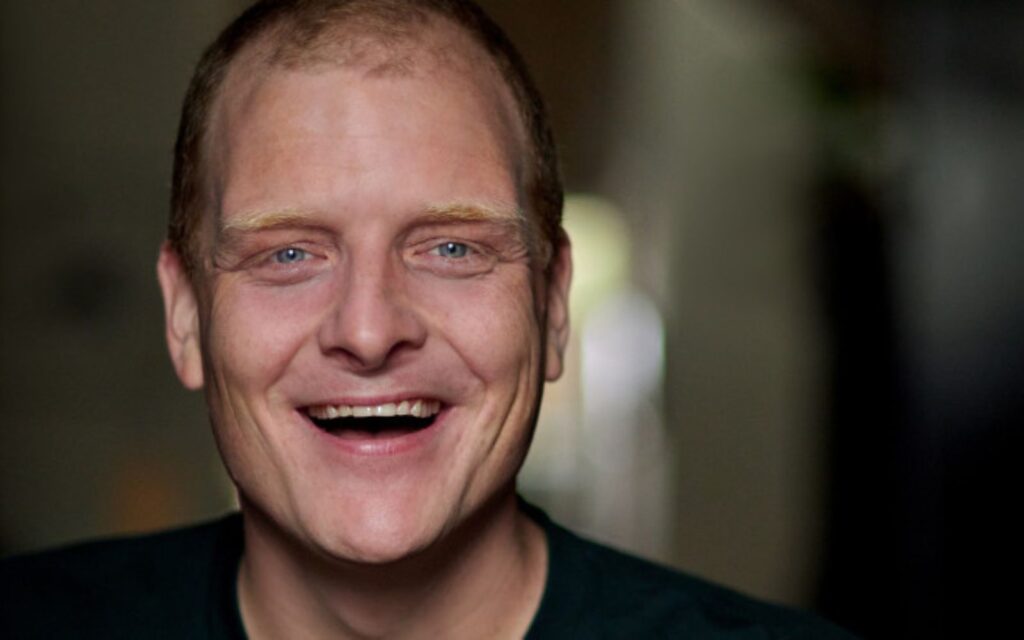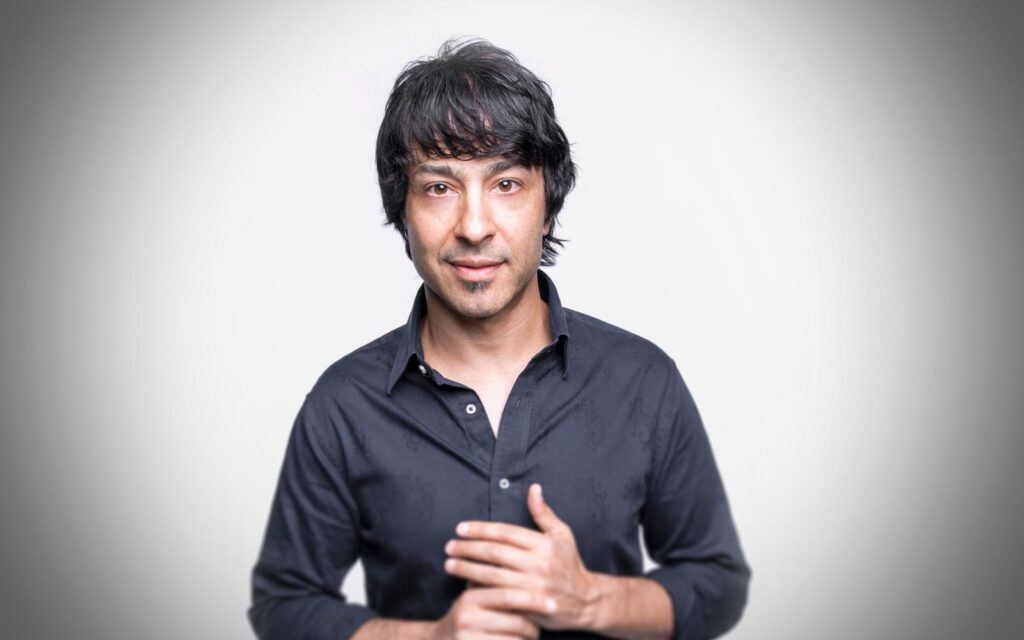Beat spoke to Lamine Sonko, Artistic Director of the show. “I’ve performed in the Boite millennium concert before. This is the first time I’ve directed,” Sonko tells us when we catch him just after having collected his mum and dad from the airport. “The song collections come from our Griot culture,” he explains. “There are stories behind them – they are passed down our family lineage. In this show we are sharing some of these ancient songs with their stories in a choir setting.”
What are the songs about? “They tell stories of how Africa is a big continent, how we are connected with animals, with nature, with the wider community,” answers Sonko. “Some of the songs are coming of age stories, and go towards creating inter-generational understanding.” Does Sonko have a favourite song? “I really like all of them. They are messages from the old days, they are part of our oral history along with the rhythms and dance; they map the world we live in.
“We are giving Melbourne a taste of the big continent of Africa where there are thousands and thousands of tribes with their own music and their own stories. You can’t cover it all in a one or two hour concert but our collection of music spans the continent – we have music from Tariro Mavondo, from King Bell, from Jimmy Mulovhedzi from South Africa, music from Ghana, the Burrundi Drummers Group of Victoria, from Ajak Kwai from Sudan, the Asanti dancers, music from Morocco, music from the Soweto Gospel Choir – the concert is all about multi-culturalism in Melbourne; migrants are given the chance to showcase their work; that’s what the concert is all about.”
As well as being multi-cultural, the concert spans age groups and will feature The Boite Schools Chorus for the 11th year; their part of the concert will travel to regional areas after performing at The Deakin Edge at Federation Square. “One Africa is intergenerational,” notes Sonko, whose parents have come to Melbourne to perform in the show themselves. “It’s a chance for audiences and musicians to hear from experts who have lived longer than us, to see them perform and to share their gifts in a very unique way and walk away with a greater understanding of life in Africa.”
Are there any special challenges bringing works like this to the big stage? “These songs are usually sung in a community setting with traditional drums and rhythms, they aren’t written down,” explains Sonko. “They’re certainly not written in any western musical form. They have to be changed to make them suitable for a western setting.” As a drummer, guitarist and dancer, Sonko has worked with the team from Melbourne music institution the Boite including One Africa Musical Director Andrea Khoza to ‘transform’ the music in a way to make it easy to share. What does this involve? “I have to bring traditional songs that might have only one or two part harmonies to where they have four part harmonies, find how the flow goes, focusing on the rhythm and the importance of finding where the voice fits in with it, and blending it carefully together.”
Sonko, who plays with his own band and teaches drums when not leading choirs, sees the concert as being in some ways like a reflection of his own life after coming to live in Australia ten years ago. “It’s a fusion of the modern and the traditional, which is what I am now since I’ve resettled here in Australia. Changing the music for the choir is a bit like the resettlement process for me! The hardest thing has been changing my way of life, and the musical setting for these songs is very different.”
It is no accident that Sonko finds himself in this role – his background as a Senegalese Griot means his family are known as culture keepers and it is a traditional responsibility of theirs to practice and teach stories of their culture through song, music and dance. “I am a modern Griot,” he says. “A modern culture-keeper. I get to tell these stories here, tell them in the modern way so people have an idea of what life is like in Senegal – it’s our duty to really share what life is like there.” Sonko’s parents are well known performers in Senegal: his father, Bouly Sonko, is the Director for the Senegalese national drum and dance company Waaro Siita, and his mother, Oumy Sene, was the first solo dancer for Le Ballet National Du Senegal and is also a member of Waato Siita.
Sonko is aware of how important it is to share cultural specifics given the history of slavery and the African diaspora where so much was lost. “What history really shows is that during slavery, or when people are taken outside their country, when they are leaving their culture they have to find new ways of keeping their musical knowledge.”
BY LIZA DEZFOULI
